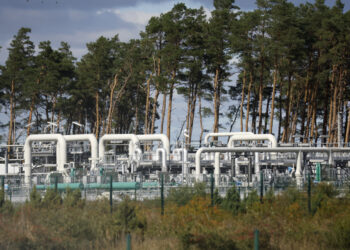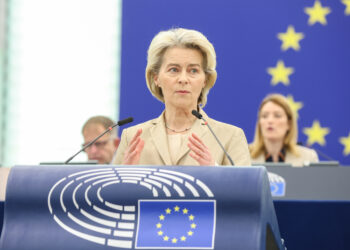Brussels – A 275 billion investment per year to renovate the entire EU building stock. Otherwise, the risk is to completely miss the energy efficiency targets set by Brussels for 2030 on the way to the coveted climate neutrality to be achieved by mid-century. This is what the European Energy Commissioner, Kadri Simson, declared when presenting the Energy Efficiency Financing Coalition, the platform for “thinking, planning, and executing together” the massive investment plan needed.
The Coalition will bring together member states, financial institutions, and European Commission departments, organized in a three-tiered system: regular meetings chaired by the European Commission, expert groups from key stakeholders, and national hubs. Each member country must create its national hub and appoint a chairperson. These “specific results-oriented teams” will be called upon to “provide concrete financing solutions tailored to different markets,” Commissioner Simson explained.
The executive announced the Coalition as part of the “Save Energy” communication along with REPowerEU, the plan presented in May 2022 to ” end the European Union’s dependence on Russia’s fossil fuels and address the climate crisis.” Energy conservation is one of the main pillars of the plan. “It is the fastest and cheapest way to tackle fossil fuel dependence and reduce consumer energy bills,” Simson stressed. However, continuously improving energy efficiency requires “huge investments; just think of the EU’s building stock or heating and cooling supply.”
Under the provisions of the so-called “green homes directive,” approved finally on April 12, EU states will have to renovate at least 16 per cent of the worst-performing nonresidential buildings by 2030 and 26 per cent by 2033, while a target to reduce energy consumption by 16 per cent by 2030 and 20-22 per cent by 2035 will apply to residential buildings. Some countries, led by Italy, have strenuously sought to oppose the new law, which the Italian government has deemed inadequate for such a historic building stock as the Bel Paese.
Beyond the Italian case, it is clear how much public and private investment the European Union will need to be able to channel to ensure that energy efficiency goals do not remain just numbers on paper. A major role in the Coalition will be played by the European Investment Bank (EIB), “a partner we count on for the implementation of many energy efficiency-related projects,” the EU commissioner declared.
English version by the Translation Service of Withub

![Un particolare del 'bosco verticale' a Milano [foto: Wikimedia Commons]](https://www.eunews.it/wp-content/uploads/2024/04/case-verdi-350x250.png)





![Una donna controlla le informazioni sul cibo specificate sulla confezione [foto: archivio]](https://www.eunews.it/wp-content/uploads/2014/12/Etichette-alimentari.jpg)

